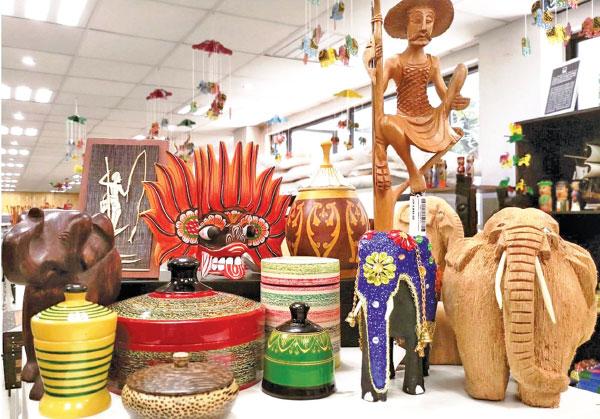
Three days ago, Valentine’s Day was celebrated by a large number of young Sri Lankan urbanites. For them the day represented feelings of love, warmth, affection and friendship.
The celebrations may have taken the form of a simple thing such as a secret Valentine’s card or a bouquet of flowers. Or it may have been lavish like an evening out and dinner in a plush Sri Lanka hotel. The hoteliers were ready for the surge weeks ago. One hotelier advertised, “Cherish the evening with your Valentine at the landscaped beachfront gardens with a set-menu dinner. At the end, stand a chance to be crowned Valentine King and Queen.”
How often have you heard someone remark in woeful tones, “How sad that city folks in Sri Lanka are losing their elegant culture?” This fear seems to be very much alive today.
Perhaps, the talk of globalization, fuelled by the awareness of an already changed cultural landscape, is responsible for this recent wave of concern. We often hear the complaint from older Sri Lankans with a slight tremor in their voice and a pained look in their eyes.
New Year festival
As an urbanite, I too believe that my fellow dwellers are gradually discarding Sri Lankan cultural values. Take for example, the Sinhala and Tamil New Year which is just two months away. April is the month when the average Sri Lankans prepare to celebrate the new beginning in harmony with Mother Nature. But most of the urbanites have lost the meaning of the New Year festival and the emotions that originate from it.
Those who can afford it, would pack up their bags and move to the hill country or beach front resort, or out of the country for a long holiday.
For these urbanites December has become the real festive season. Shopping malls, restaurants and hotels are all decked in the baubles and tinsels that mark the Christmas season. A forest of Christmas trees and red Santa costumes lift the spirits of people looking for something to celebrate. Many, especially, the young are busy with their parties and festival celebrations.
Cell phones buzz with Merry Christmas messages. It’s a sign of the times - urban Sri Lankans celebrating in droves, the western traditional festival.The media join in, building up the festivals through wide coverage. Above all, the businessmen seize the opportunity to promote everything under the sun, adding more sparks and whipping up the celebrations into a frenzy of buying, eating and bonhomie.
Cultural preservation
All this leads to criticism from those who say that the urbanites in Sri Lanka are neglecting their own traditions by embracing Western culture. Some people have even proposed that laws need to be introduced to protect our traditional festivals.
At least, the major festival -the traditional New Year - should be promoted by the State in a more pro-active way, getting the citizens involved, including those in the cities.
The watchword, then, is cultural preservation: keeping a close watch for whatever might imperil our culture; eradicating anything that threatens to suffocate our cultural forms, employing the same measures we have taken to preserve our wildlife.
We have to do it with redoubled diligence, as otherwise, we would be losing not just some form of life symbolic of our culture, but the culture itself. We have to man the watchtowers with extra effort and keep a vigilant eye for that massive change - the attacking force which will overwhelm the citadel, or the final towering wave which will wash away the remainder of our culture.
Maybe, cultural change in Sri Lanka has been occurring for a few centuries, but never more intensely than during the past 50 years. The waves have long since started washing over our island, and there is no indication that the storm will abate in this present era of globalization. We can expect much more of the same in the decades ahead, unless we are alert.
Western culture
Valentine’s Day, Mother’s Day and Father’s Day, e.g. are becoming popular in urban Sri Lanka. Seen from the surface, it’s a resonance of human nature, but if seen at the core, it’s the pursuit of Western cultures by the young generation.
In the present structure of cultural exchanges, western cultures, especially, the U.S. culture takes the vantage point. Fast food giants, Hollywood, Microsoft, American English, are a strong temptation to young urbanite Lankans.
We do not say to avoid fast food, nor the donning of western clothes, but emphasize that we should absorb all the wonderful things in foreign cultures that can enrich our spiritual and material life, while keeping a distance from their negative influence. At the same time, we should maintain the Sri Lankan traditional culture and assure its dominance in social life.
Pass the torch
With global communications and travel now so readily available, even those tight-knit communities are ‘suffering’ the consequences of globalization. Today’s urban youth is finding it increasingly difficult to identify with their cultures due to this intermingling with all peoples of all ethnicity and all walks of life.
Sociologists have much work ahead of them, to study the effects of globalization on self-identity. It appears to be a major factor why so many of our young people are having trouble forming a sense of self.
The only way the urbanites can ensure the continued relevance of our culture is by passing the torch to the young. The younger generation need to be taught their rich heritage so that our traditions, beliefs, values and identity will not fade.
There’s no issue in celebrating global festivals, as Sri Lankan culture always has room for other cultures. Nevertheless, everything has a limit. Our culture is the root of our nation. Festivals are carriers of the inheritance of the nation’s culture. This is an important feature of our unique culture, which is a reflection of harmony.
